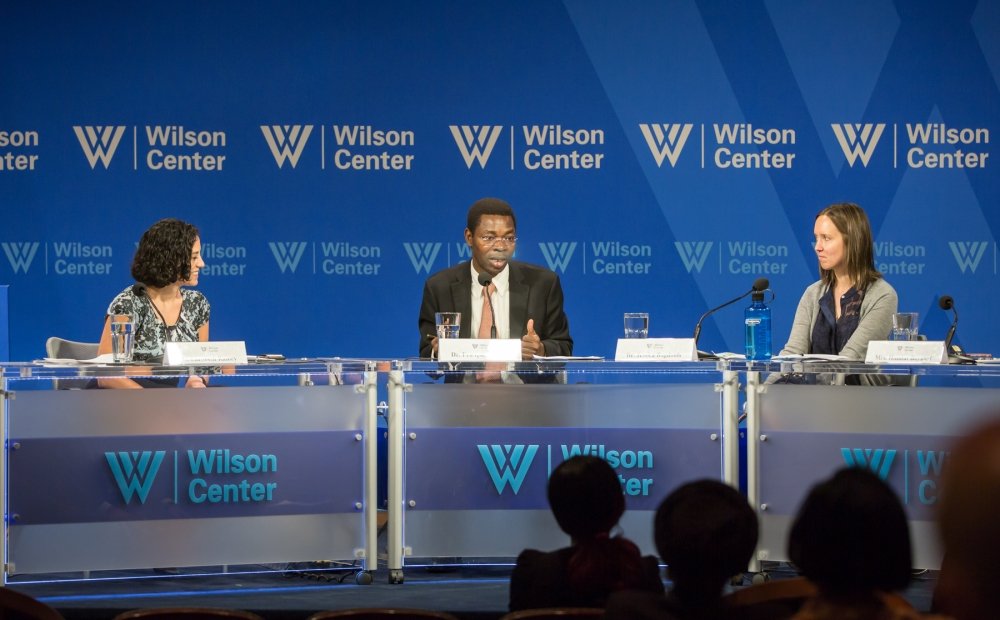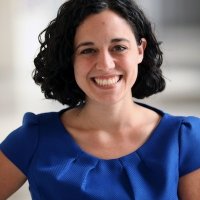Education, Entrepreneurship, and Youth Employment in Côte d’Ivoire and Beyond

On June 29, 2016, the Wilson Center Africa Program hosted a discussion that examined the important roles entrepreneurship and education play in employing the youth of Côte d’Ivoire. The panel consisted of Dr. François Pazisnewende Kaboré, a Southern Voices Network Scholar* and the Director of the Jesuit University Institute and Manager of the MBA program in entrepreneurship at the Center for Research and Action for Peace (CERAP); Ms. Jessica Bagdonis, Project Design Fellow in the Bureau for Food Security at USAID and former Director of Program Quality and Impact of the Higher Education for Development (HED) Program within USAID; and Mrs. Himdat Bayusuf, an Education Economist in the World Bank’s Education Global Practice.
Dr. Kaboré provided background and context to the situation on the continent. Africa’s youth are facing an unemployment crisis, he noted, with more than 10 million individuals entering the job market each year, and nearly 20% of them remaining unemployed. Perhaps counterintuitively, unemployment is greater among those with higher education, increasingly the likelihood of unemployment two to threefold. Entrepreneurship can be a vehicle for self-employment and job creation on the continent, Dr. Kaboré argued; yet offering a single entrepreneurship course to university students does not have a significant effect on the intent to become an entrepreneur. Instead, Dr. Kaboré has found in his research, universities, governments, and the private sector must work together to create an ecosystem of support for aspiring entrepreneurs, including training, mentorship, and access to finance. He recommended that Ministries of Education and international donors supporting higher education projects should include designated line items in their budgets for the development and implementation of holistic entrepreneurship curricula.
Dr. Bagdonis echoed the importance of an entrepreneurial ecosystem within higher education to promote entrepreneurial activity on the continent. She focused on the importance of sequencing capacity development among individuals, departments, institutions, and communities who are stakeholders in this ecosystem. Dr. Bagdonis shared some of the key lessons learned from the Higher Education for Development project, including the importance of identifying a champion and working across levels of stakeholders; allowing faculty the time and resources to try new pedagogical approaches; utilizing successful role models; and seeking accreditation and other program quality recognitions.
Mrs. Bayusuf asked the audience to take a step back and evaluate the role and status of higher education in Africa. She affirmed that higher education is a growth opportunity worthy of investment across sectors, as the demand for skills rises across the continent. The World Bank has adopted a “results-based” and regional approach to higher education, which promotes specialization and concentrates talent and resources to develop emerging Centers of Excellence.
While the discussion focused on support for entrepreneurs at the level of higher education, all of the panelists noted the importance of developing entrepreneurial skills among those self-employed in the informal sector as well. The women who run West Africa’s marketplaces, for example, represent a “missed opportunity” for capitalizing on the entrepreneurial instincts already present in local populations, according to Dr. Kaboré. Vocational training programs thus also have a critical role to play in promoting entrepreneurship and job growth throughout the continent.
This event was live-tweeted and a complete audio recording of the event is available above and at this link. Follow the Africa Program on Twitter @AfricaUpClose and catch up on the conversation with the hashtag #EntrepreneurshipinAfrica.
*The Southern Voices Network (SVN) is a consortium of research and policy organizations from across Africa that seeks to foster dialogue and increase the visibility of African perspectives within the U.S. policy arena. One of the main components of the SVN is the Africa Research Scholarship Program, through which the Wilson Center Africa Program hosts scholars from member organizations for a 3-month resident scholar program in Washington, D.C., allowing them to engage with U.S. policymakers and practitioners and conduct policy-oriented research. The SVN is made possible through the generous support of the Carnegie Corporation of New York. For more information, please see here.
Speakers

Director, Jesuit University Institute at the Center for Research and Action for Peace

Hosted By

Africa Program
The Africa Program works to address the most critical issues facing Africa and US-Africa relations, build mutually beneficial US-Africa relations, and enhance knowledge and understanding about Africa in the United States. The Program achieves its mission through in-depth research and analyses, public discussion, working groups, and briefings that bring together policymakers, practitioners, and subject matter experts to analyze and offer practical options for tackling key challenges in Africa and in US-Africa relations. Read more
